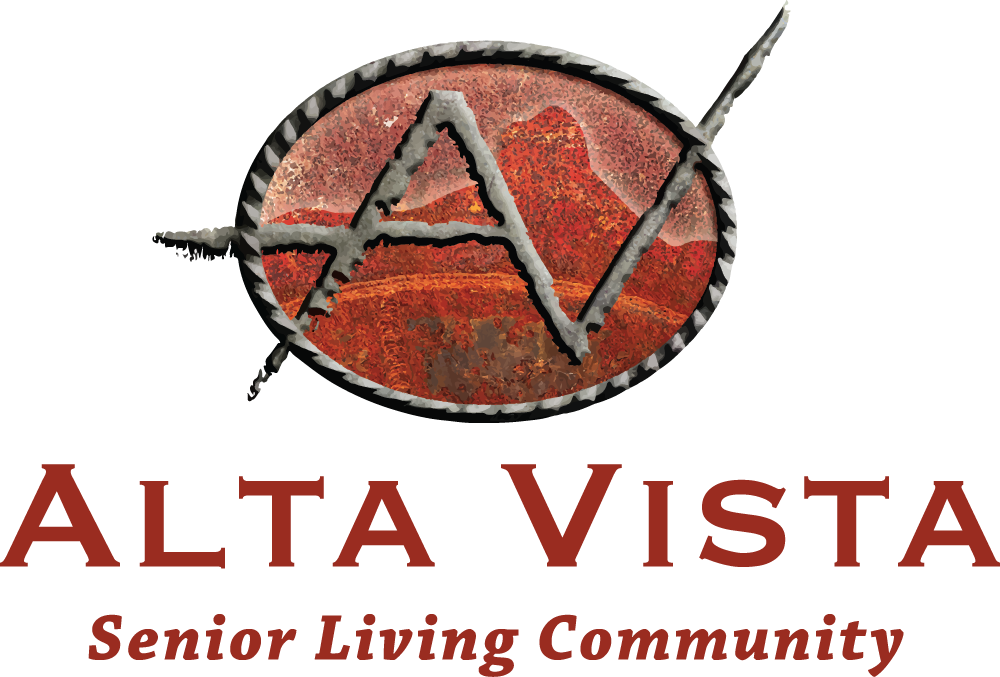
If someone you love is living with memory loss, you’ve likely come across the term memory care.
But understanding what that means — and whether it’s the right fit — can feel overwhelming.
At Alta Vista Senior Living, we’ve helped many families through this exact situation. We’ve created this guide to offer clarity, reassurance, and answers to the questions you may have right now.
You’re not alone in this. And you don’t have to figure it out by yourself.
What Does Memory Care Mean?
Memory care is a type of senior living specifically for people with Alzheimer’s disease or other forms of dementia. It provides more than just assistance—it offers daily structure, around-the-clock support, and a safe, comforting environment for people experiencing memory loss.
What sets memory care apart from assisted living is the level of support. While assisted living helps with everyday needs like meals and medications, memory care focuses on the challenges of cognitive decline, such as confusion, wandering, or behavior changes.
Our memory care community at Alta Vista is designed to meet these needs with understanding and compassion.
Who Memory Care Is For
Memory care is intended for older adults who are no longer safe or well-supported living at home — either on their own or with family — due to cognitive decline.
We often speak with families who are noticing changes such as:
- Forgetting where they are or how to get home
- Getting up at night, wandering, or trying to leave the house
- Struggling with daily tasks they once did easily
- Becoming confused, anxious, or withdrawn
- Repeating themselves often or having trouble finding the right words
- Feeling overwhelmed as a caregiver without the tools or time to provide full-time care
Consider a memory care setting if these behaviors are becoming more common and affecting safety, health, or peace of mind.
What Our Memory Care Community Offers
At Alta Vista, our memory care community is built around comfort, familiarity, and personalized support. Every detail — from our staff training to our daily schedules — is in place to help your loved one feel safe and engaged.
Here’s what families can expect from our memory care program:
24/7 Support from Dementia-Trained Staff
Our care team is always available, day and night. Each caregiver is explicitly trained in Alzheimer’s and dementia support, so they understand how to respond calmly and respectfully to changes in behavior.
A Safe, Secure Environment
We’ve designed our spaces to prevent confusion and reduce risks. Our memory care community includes secured entry points, enclosed outdoor areas, and easy-to-navigate layouts to give residents freedom and protection.
Daily Routines That Bring Calm and Comfort
Predictable routines help reduce stress and confusion. We offer consistent daily schedules that include meals, rest, activities, and gentle reminders to help your loved one feel more at ease.
Activities That Encourage Connection and Engagement
We offer enriching programs built around each resident’s abilities and interests—from music and movement to sensory games and one-on-one interactions. These small moments can have a big impact on mood and memory.
Ongoing Communication and Family Involvement
We believe in keeping families involved and informed. You’ll receive regular updates, have opportunities to participate in care planning, and always know what’s happening in your loved one’s daily life.
How Memory Care Can Help Families
Many of the families we support tell us they waited longer than they should have to explore memory care. And after moving their loved one in, they felt relief — not guilt.
Here’s what memory care can provide for families:
- Peace of mind, knowing your loved one is safe and cared for
- Support around the clock, so you’re not constantly on-call
- Improved quality of life for your loved one with routines and activities designed for them
- Time to reconnect as a family instead of focusing only on caregiving responsibilities
More than 6.9 million older adults in the U.S. are living with Alzheimer’s today — and that number continues to grow. Providing memory care at home isn’t always realistic. That’s why our communities exist — to support your loved one and your family.
What Makes Alta Vista’s Memory Care Different
At Alta Vista, our memory care program is about more than managing symptoms. It’s about creating meaningful days, nurturing dignity, and surrounding each resident with kindness, patience, and purpose.
Families choose us because:
- We offer a secure, home-like setting that feels calm and welcoming
- Our care team is trained in dementia care and deeply committed to each resident
- We provide engaging programs that support connection and joy
- Our location in Prescott, Arizona, offers beautiful surroundings and convenient access for local families
- We take a personalized approach, learning your loved one’s history, preferences, and routines
Most of all, we care for your family member like we’d care for our own.
Signs It Might Be Time for Memory Care
It’s not always clear when to make the move. But based on our experience, here are some signs that memory care could be the right next step:
- You’re worried about your loved one’s safety at home
- They’re forgetting essential tasks — like taking medications or turning off appliances
- They’ve stopped cooking, cleaning, or attending to personal hygiene
- You’re seeing signs of aggression, paranoia, or withdrawal
- You feel exhausted, frustrated, or overwhelmed as a caregiver
- There’s been a recent fall, ER visit, or major health concern
Even if you’re not ready to decide immediately, we’re always available to answer questions or tour you. Sometimes, just having a conversation can bring a lot of clarity.
Common Questions Families Ask Us
- What’s the difference between memory care and assisted living?
Memory care offers specialized support for those with memory loss. It includes a higher level of supervision, structured routines, and secure environments. - Does insurance cover memory care?
Memory care is usually paid for privately. Medicare does not cover long-term memory care, but long-term care insurance or Medicaid may help in some cases. - How much does memory care cost?
In Arizona, the average cost is between $5,500 and $6,000 per month, depending on services and location. - What if my loved one resists moving?
This is very common. We can help you prepare for the conversation and involve your loved one in small, thoughtful ways to make the transition easier. - Can we visit often?
Absolutely. Families are encouraged to visit, participate in events, and stay involved.
Let’s Talk — We’re Here for Your Family
If you’re wondering whether memory care might help your loved one—even if you’re not ready to decide—we invite you to contact us.
Alta Vista Senior Living is here to provide answers, support, and a community where your loved one can feel safe and cared for.
📞 Call us at (928) 379-7369
📅 Or schedule a tour here
We’ll listen, answer your questions, and help you find the right support for your family.

